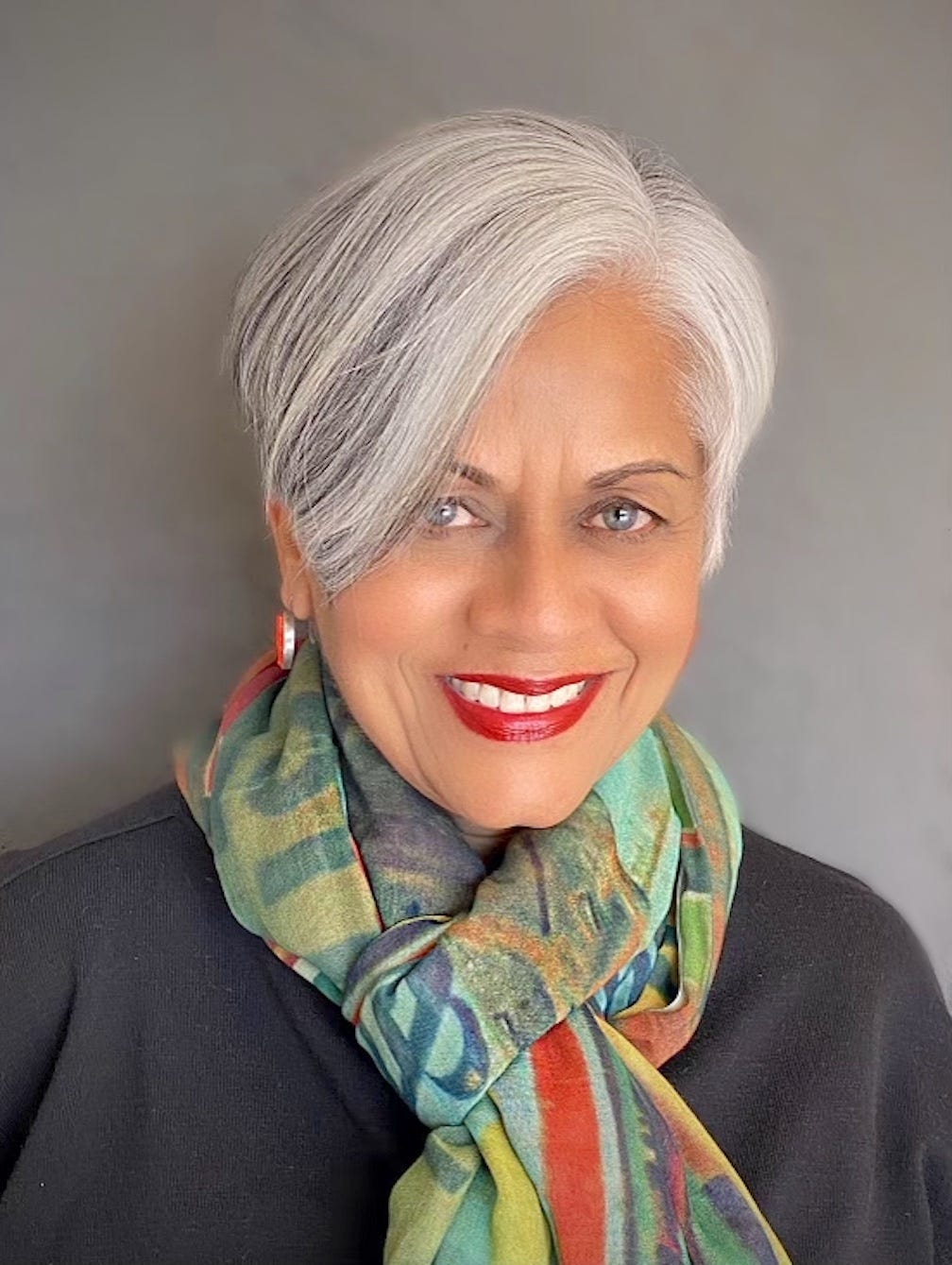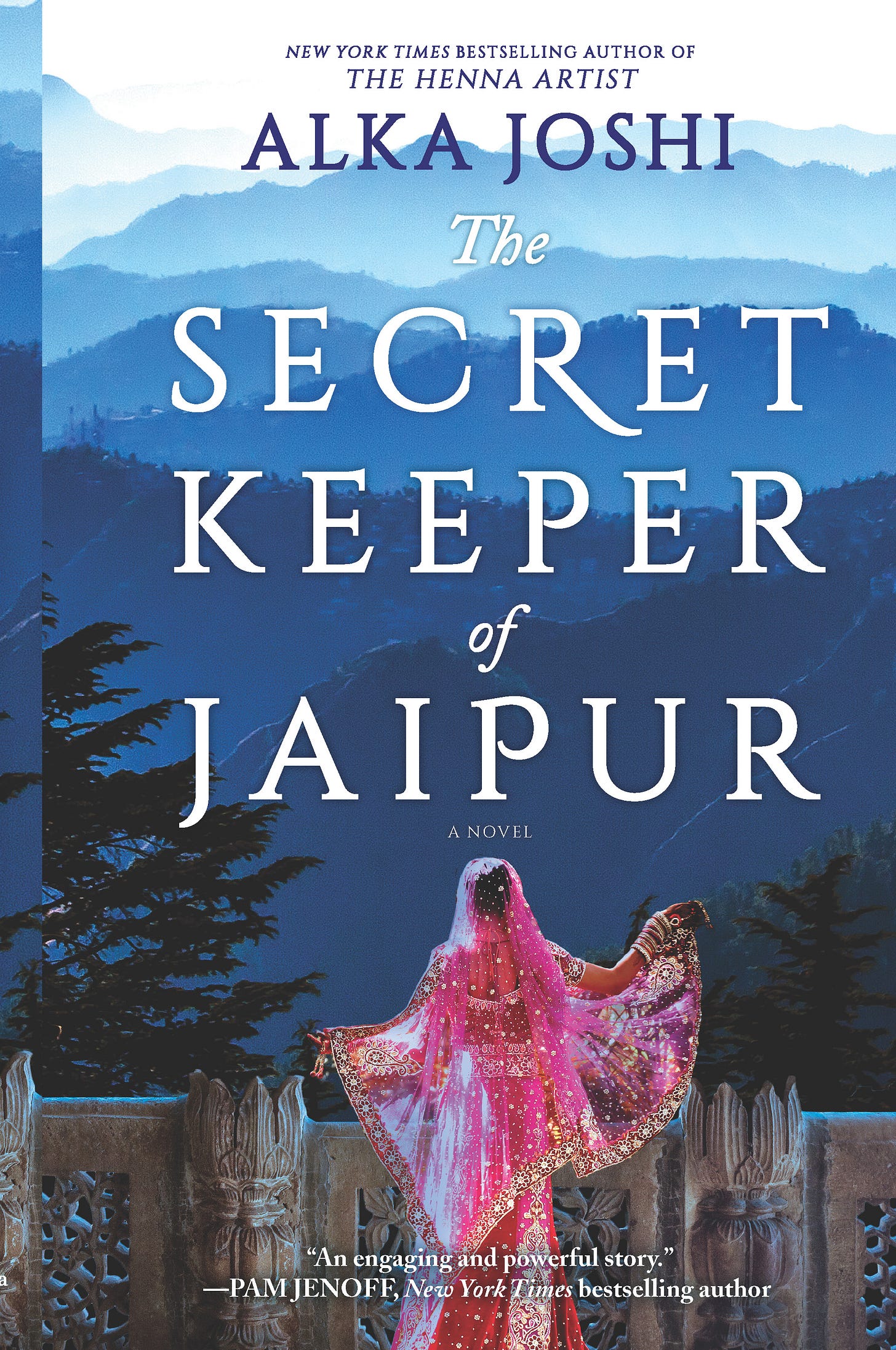Intimate conversations with our greatest heart-centered minds.
Alka Joshi is very much the sort of human I would like to have as my neighbor. Smart, kind, engaged, wonderful sense of humor, and loves dogs, she’s also generous and compassionate. Both her novels reflect this. The Henna Artist tells the story of Lakshmi who escaped an abusive marriage to become a highly sought after henna artist in 1950s Jaipur. She’s taken into the confidence of wealthy and powerful society ladies—both for her exquisite designs and her knack for healing various mental, emotional, and physical ailments though the use of food, herbs, and touch. But her business and her dreams of owning her own home are compromised when a younger sister she didn’t know about appears on the scene. Reese Witherspoon selected it as her May 2020 Hello Sunshine Book Club pick, it’s a New York Times bestseller, and Netflix has optioned it for a series with Freida Pinto in the lead.
The second in the trilogy, The Secret Keeper of Jaipur, takes place in the late sixties and finds Lakshmi living in the cooler mountains of Shimla and running the Healing Garden at the Lady Bradley Hospital, which combines conventional and traditional medicines to great success. The final book in the trilogy, The Perfumist of Paris, releases March 28, 2023.
While the stories hold many themes, they are largely about women fighting to have agency over their bodies and their lives, and the ways they support one another, the ways they don’t, and the obstacles they face from societal norms. The novels also offer a profound examination of social and wealth stratification as well as an exploration of the relationship between Hindu and Muslim communities. At heart, they’re stories of harmony. And all the magnificent ways the characters find peace with themselves, each other, and the land.
Born in Jodhpur, Rajasthan, India, Alka moved to America with her family when she was nine. She went on to attend Stanford University and, at the age of 53, earned her degree in writing at the California College of the Arts.
I was delighted to chat with Alka about healing, tolerance, having children, and the magnificence of India.
I wondered if we could start with Lakshmi’s skill with healing through herbs and Ayurvedic medicine. Could you tell us about your relationship to these practices?
In India, most people will rely on Western, Eastern, and other modalities that have been practiced in their family. Indians are not either/or, they're not black or white. They’re very accepting of a lot of different philosophies. Somebody who’s a cancer patient will go to the cancer clinic, but they'll also go to their Ayurvedic doctor and seek herbal treatment. And maybe they'll seek remedies that their grandmother or aunties used to practice. I think it's something that the Western world could learn from. Instead of choosing one modality over another, combine any number of treatments the patient needs in order to heal. All our bodies are different; we don't all respond the same way.
In the early years of healing from head and brain injury, Western medicine didn’t provide the proper support, so I leaned heavily on alternative. Then I realized that was as anti-conventional medicine as Western medicine was anti-alternative. On either side, you aren't getting that full benefit from the ways that they can each support one another, the ways they can work in unison.
You’ll find that most people in India believe that. One time my mother landed in the hospital in Jaipur. I was walking out of the lobby to get some fresh air and looked across the street. There was a Western pharmacy right next to an Ayurvedic pharmacy right next to a sort of massage-based pharmacy. The same people were going to all three. It’s possible to combine different treatments; they’re not in competition with one another.







